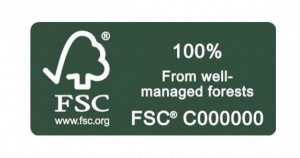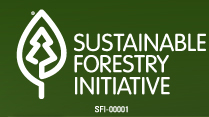by John Pumilio, Director of Sustainability
People are often faced with an overwhelming amount of choices when making a purchasing decision for any single product.
Take paper, for example – a simple search for 8.5×11 printer/copier paper on the Staples website will bring up hundreds of choices. In the end, each of us makes our decisions based on a number of preferences. For example, price and quality may be priorities for some while environmental sustainability may be important to others.
For several years now, Colgate has had an institution-wide preference to purchase recycled content and/or Forest Stewardship Council (FSC) certified paper.
We hope this post will help you find the most environmentally responsible paper while also keeping in mind cost and quality. But first, it is important to know that Staples identifies recycled content paper and various environmental certifications within the product descriptions. Please read about the products before deciding on a brand. Additionally, if you search for copy paper within the Staples website, you have the option to narrow your choices to environmentally responsible choices by checking the “ECO-CONSCIOUS” box. This makes it easier for you to identify the products that have the environmental attributes you are looking for.
Keeping this in mind, here are a few criteria to consider when choosing paper that is best for you:
- Post-Consumer Recycled Content Paper. Paper that was once a cardboard box, newspaper, magazine, printer/copier paper, notepad, or any other paper product that was used by someone else before being recycled and processed into something new for you. Paper made with post-consumer recycled content ultimately relies on fewer forests that must be cut down to feed the demand for virgin paper. In sustainability circles, post-consumer content paper is preferred over recycled content paper.
- Recycled Content Paper. Paper made from recycled content (sometimes labeled as pre-consumer recycled content) is created from manufacturer waste that never actually made it to the consumer for one reason or another. Manufacturer waste such as scraps, rejects, or trimmings that end up on the factory floor is repurposed into something new rather than trashed. Pre-consumer recycled content paper saves precious resources but is still not as good as post-consumer recycled content paper.

Forest Stewardship Council. Look for this logo when purchasing paper at Colgate University.
- FSC Certified Paper. The Forest Stewardship Council (FSC) and the Rainforest Alliance certify environmentally appropriate, socially beneficial, and economically viable management of the world’s forests. By purchasing FSC certified paper, you are doing your part to preserve forests and the wildlife they support. EarthChoice® and Mohawk® office paper, for example, are FSC and Rainforest Alliance certified. A full list of FSC certified paper offered through Staples can be found here.
- SFI Certified Paper. The Sustainable Forestry Initiative (SFI) is another certification that helps the consumer choose paper products from well-managed forests. In many sustainability circles, SFI is not viewed as favorably as FSC. SFI was formed by the American Forest and Paper Association, an industry group. Still, SFI certification is better than nothing.

Sustainable Forestry Initiative. A good second-option if FSC certified paper is not available.
There are also new types of high-quality paper that are made from rapidly renewable resources (e.g., sugarcane, bamboo, and other materials that are not trees) that have gained favor from sustainability advocates. Step Forward copy paper, for example, is made from 80% wheat straw. The paper is acid-free, elemental chlorine-free, recyclable, biodegradable, and compostable. Step Forward paper can be ordered through Staples.
Finally, Colgate’s Office of Sustainability recommends purchasing paper that contains both post-consumer content and is FSC certified. A few brands of paper that meet these criteria include Hammermill®, Boise® Aspen™, Staples®, Wausau®, and HP Office™ office paper. Again, it is important to look at the produce description to identify the environmental attributes of the paper. And, of course, the higher the recycled content (100% vs. 30%) the better the paper is for the environment.

